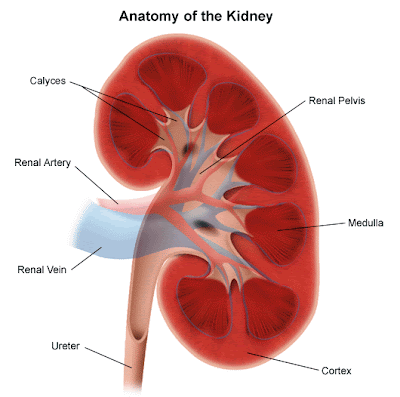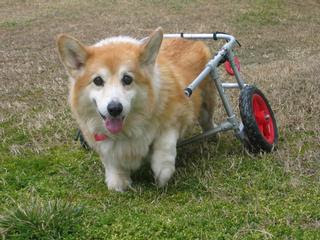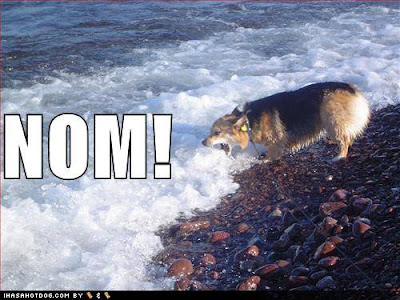Seeing as how I've gotten way way behind in posting about my rotations, I have a bit of catching up to do... So, here's the short-and-sweet version of my last 6 rotations:
 Rotation #14: Avian and Exotic clinic externship
Rotation #14: Avian and Exotic clinic externshipI spent two weeks in Indiana at a practice that sees just about everything but cats and dogs- including parrots, rabbits, ferrets, opossums, skunks, zebras, turtles, and arctic foxes. They do all the things that a normal practice does, like spays and neuters, toenail trims, and managing diabetic patients, but they also offer services for the exotic patient's, er, special needs- things like beak trims for birds and turtles/tortoises, de-scenting surgery for skunks, and "bird divorce" for birds who have accidentally sexually bonded with their human owners. Super fun rotation! I got to see so many things that we don't get any exposure to at the U of MN since our teaching hospital doesn't generally see exotics. This externship reaffirmed my desire to specialize in exotics and inspired me to apply primarily for avian/exotic internships for 2010-2011.
Rotation #15: Small Animal Medicine-B
This was my third Medicine rotation, and like the other two, I got to see a fair number of patients with vomiting and diarrhea, diabetes and other endocrine disorders, and coughs/sneezes. But, also like the other two, this one had an underlying theme. My first SAM was all about infectious diseases like Anaplasmosis and Blastomycosis, my second I saw a lot of chronic diseases like immune-mediated hemolytic anemia and diabetes, and my third SAM I saw a lot of urinary system diseases. It probably had a lot to do with the fact that we were on with Dr. David Polzin, one of a tiny handful of veterinary nephrologists (kidney specialists). People will drive a long way to see him, so we got to see quite a few really rare kidney conditions, along with the more common urinary tract disorders like bladder stones and urinary tract infections. It definitely helped me brush up on my renal physiology!
 Rotation #16: Radiology
Rotation #16: RadiologyOh, radiology. Every vet school seems to have a subject that causes vet students much grief throughout their didactic years- for some it's pathology, others pharmacology, and at the U of MN, it's radiology. Part of it is because the senior radiologist is a radiology genius who can somehow make an anatomical abnormality or pathologic change out of the most subtle differences in shades on a radiograph... and the other part is that he assumes other people can see those differences too. Even though the classes were challenging, I actually really enjoyed radiology, and the rotation was even better. There's something very satisfying about being able to tell what's wrong with an animal within a few minutes of taking the x-ray. Of course, radiologists have to be the ones to make the calls like "That looks like a tumor in the lungs" or "That abdominal mass has gotten bigger", which is really difficult in a specialty that can be as subjective as radiology ("Is that tiny slightly whiter patch maybe a tumor, or just an artifact?"). Then there are the really annoying cases where the animal is really sick, but the radiographs look completely normal. Hmph. Either way, I loved the half-science, half-art nature of radiology and learned a lot on the rotation.
I also took boards during this rotation. I prepared using the new
Veterinary Board Review Flashcards (hint: they work GREAT with a Trivial Pursuit board!), plus I completed all of
VetPrep (approximately 2 bajillion NAVLE-style multiple-choice questions). I tried to use some other study tools like the A to Z Guide and the Ohio board review notes, but they didn't really work for me. I completed the NAVLE in about 3 1/2 hours, even though I took a few 10-minute breaks and tried to force myself to slow down (most people take 5 or 6 hours to finish). I spent the next month panicking that I'd failed because I didn't read the questions closely enough, but as you know, I got the good news last week that I passed! I guess I've always been a pretty fast test taker...
Then, I also had to complete and send in my application for the VIRMP, which is the organization in charge of assigning vet students to internships. I applied to 10 internship programs, one of which withdrew from the match before I had a chance to rank them (hmph, no fair). After applying, we had to rank the programs (first choice, second, etc). Then the programs rank their applicants. Then all the data goes into a big computer who puts them through some fancy algorithm and pops out the program that came closest to matching your rank list. On February 8th (our
"Match Day"), we'll be notified of where we matched (or if we didn't match at all), and thus where we'll be spending the next year of our lives. Not all vet students apply for internships, but I'd say my class has 15 or 20 people participating this year. It will be a big day!
Rotation #18: Animal Humane Society externship
I spent two weeks just before Christmas at the
Animal Humane Society in Golden Valley. Most of my time was in the OR, performing spays and neuters and other minor procedures on incoming animals. I learned a TON and became a much more confident surgeon. I got to see a really wide range of anatomy (big dogs, little dogs, baby cats, pregnant cats) and experienced almost every common complication that can occur during surgery (except for dropping a pedicle... still haven't done that one yet). I got better at anticipating complications and learned how to be a more efficient surgeon without compromising any surgical technique. Of course, I also fell in love with a bunch of super cute animals and tried to bring these little kittens home at least three times, but... sigh, not the right time for a kitten in our lives, yet.
Rotation #19: Small Animal SurgeryThe major branches of vet (and human) med are surgery and medicine. Basically, if you can treat a problem with pills or shots or dietary modification, the patient goes to see internal medicine. That's why the Medicine service sees the animals with endocrine disorders like diabetes, infectious diseases like Lyme, or chronic problems like Inflammatory Bowel Disease. If the problem can be corrected surgically, then they go see the Surgery service (duh, right?). Sometimes problems fall into both categories and the lucky patient ends up seeing both services- like a pet who sees Medicine for bloody urine, and they determine that it's being caused by bladder stones that need to be surgically removed.
Anyway, on my Surgery rotation I got to see some cases that overlapped with what I've seen on other services, but most of my patients had problems that I'd never seen before- things like ruptured cranial cruciate ligaments (analogous to torn ACLs in people), hip dysplasia, and slipped intervertebral discs. I also got to see a number of Oncology patients who were having surgery to remove cancerous tumors- one dog had most of his tongue removed (amazingly, dogs can learn to adjust to a life without a tongue), one dog was being recut after a previous surgery failed to remove the entire tumor, and a cat had a benign tumor inside his ear. The rotation itself was pretty all-consuming, since I needed to be at school early to examine patients, spent all day either in surgery or seeing appointments, then spent all e

vening writing up surgery reports or discharge letters. I was lucky enough to get called in on New Year's Day for not one, but two surgeries in a row for dogs who had ruptured intervertebral discs and needed emergency surgery to regain use of their back legs (without surgery, they likely would have been permanently paralyzed- which isn't a death sentence, as most dogs can learn to use carts- but most people would rather have a dog who can walk). Lucky me! The rotation was exhausting and trying, especially with a few really sad outcomes, but I learned a lot and got a lot better at juggling multiple cases at a time.
 Rotation #20: Behavior Medicine
Rotation #20: Behavior MedicineI was so excited to have my Behavior rotation, and it didn't disappoint. Behavior problems are sort of underappreciated in veterinary medicine, even though they can have major effects on a pet's role in the family and are the #1 reason that people surrender animals to shelters. Behavior was pretty much the exact opposite of surgery- instead of juggling four patients at a time, seven days a week, Behavior sees about two patients a day, three days a week. Appointments last from 2 to 4 hours, and there is a TON of client education involved. I loved being able to help people understand why their pets were doing what they were doing. They would come in thinking their animal's issue- biting people, attacking other dogs, peeing all over the house- were completely random, and we could help them see how the behavior developed and what the underlying cause was. There were a lot of really satisfying cases, but some sad ones too. Just like physical problems, some behavior problems can't be managed easily, and things owners have to do to manage them affect the pet's or the human's quality of life so much that it's just not worth it. But, there were enough cases where we could see the effects of helping an owner understand their pet, and helping the pet become a positive force in the home again.
Also, I can now officially say that I've seen two instances

where people used techniques learned from Cesar Millan with really severe consequences. One person tried to discipline her dog by doing a "scruff grab" (you know, using your fingers like a wolf would use his teeth.. right?), and the dog turned and bit her. One person alpha rolled her dog when she growled at kids, and the next day the dog lunged at a child passing by with no warning. There's a reason that his show starts with a disclaimer to "not try this at home". In both cases, the owners interpreted their dogs' behavior as being rooted in "
dominance", when in reality both dogs were incredibly fearful and were trying to get the scary things to back off. Rather than punishment, these dogs need to learn how to change their underlying emotional response to the world around them, and need to learn that they can look to their owners for guidance. Does a dog want guidance from someone who causes them fear by throwing them on the ground? Nope... they need to first avoid all situations that make them scared, become desensitized to scary things through a long process of behavior modification, and sometimes need anti-anxiety medication to bring their anxiety levels down to a place where they're capable of learning (although that last one is really hard for some people- even though few people question whether diabetic patients benefit from insulin, or arthritic patients benefit from anti-inflammatories...). But alas, I guess 6 months of behavior modification doesn't make very sexy TV compared to 15 minutes of Cesar's "dog psychology".
Next, I'm on to my second (and final!!!) Small Animal Surgery. We're down to 98 days to go til graduation (on May 1st)... I'm in the home stretch!
 The Subaru was doing its best to die at the end of this week. First on Thursday it started then stalled in the Rainbow foods parking lot, forcing me to take the bus home (thank you #16 route!) and going with Megan in the Volvo to fetch it. Fortunately it started after sitting for a an hour.
The Subaru was doing its best to die at the end of this week. First on Thursday it started then stalled in the Rainbow foods parking lot, forcing me to take the bus home (thank you #16 route!) and going with Megan in the Volvo to fetch it. Fortunately it started after sitting for a an hour. Then, as I pull out of my parking spot, the steering gets really heavy and warning lights start going off all over. It turns out the V-belt tensioner bolt snapped, leaving power steering and the alternator disconnected. This was completely unrelated to the first problem of the day. But I was determined to make it home, and so removed the alternator, got the broken bolt out, walked to the hardware store, bought a new bolt, walked back and put the whole thing together again. I was not going to let that car ruin my day!
Then, as I pull out of my parking spot, the steering gets really heavy and warning lights start going off all over. It turns out the V-belt tensioner bolt snapped, leaving power steering and the alternator disconnected. This was completely unrelated to the first problem of the day. But I was determined to make it home, and so removed the alternator, got the broken bolt out, walked to the hardware store, bought a new bolt, walked back and put the whole thing together again. I was not going to let that car ruin my day!








